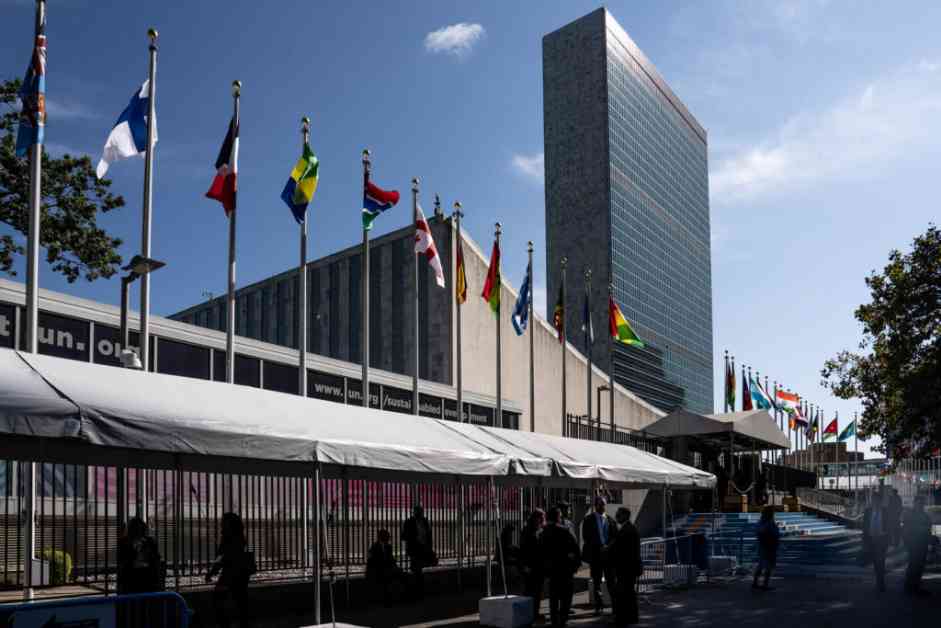The UN General Assembly, also known as UNGA, is a platform where global issues are discussed and debated by representatives from 193 member states. The General Assembly holds a general debate from September to December each year and convenes special sessions to address various issues.
The upcoming 79th General Assembly session in 2024 will focus on advancing peace, sustainable development, and human dignity. A Summit of the Future will be a key component of this session, aiming to address critical challenges in global governance and cooperation amidst increasing geopolitical competition and conflict.
One of the main topics of discussion will be the Sustainable Development Goals (SDGs), a global initiative to improve social, economic, and environmental conditions. However, progress towards these goals has been slow, with only 16 percent of them on track to be achieved by the 2030 deadline.
The UN General Assembly plays a crucial role in international peace and security, development, human rights, and more. It is the most representative body of the United Nations and elects non-permanent members of the Security Council, among other responsibilities.
Membership in the General Assembly consists of all 193 UN member states, each with a vote. The president of the assembly changes annually and is responsible for enforcing rules of procedure and setting the agenda for discussions. The current president of the 79th session is Philemon Yang from Cameroon.
Membership in the General Assembly can be contentious, as seen with Taiwan being denied UN membership due to objections from China. Similarly, the status of Palestine at the UN has been a controversial issue, with efforts to upgrade its status from a non-member observer entity to a non-member observer state.
In terms of reform, there have been calls to revitalize the General Assembly’s work by increasing its power relative to the Security Council, enhancing transparency in appointing UN executives, and improving the quality of debates within the body. Efforts have been made to make the assembly’s work more substantive and relevant in recent years.
The General Assembly has the authority to censure states for violating UN Charter principles, as seen with actions taken against countries like South Africa and Yugoslavia in the past. Resolutions passed by the General Assembly serve as indicators of member states’ positions on various issues and can have significant influence.
Overall, the UN General Assembly plays a crucial role in addressing global challenges and promoting international cooperation. Efforts to reform and strengthen the assembly’s work are ongoing to ensure its continued relevance in the ever-evolving world landscape.
